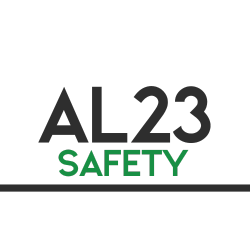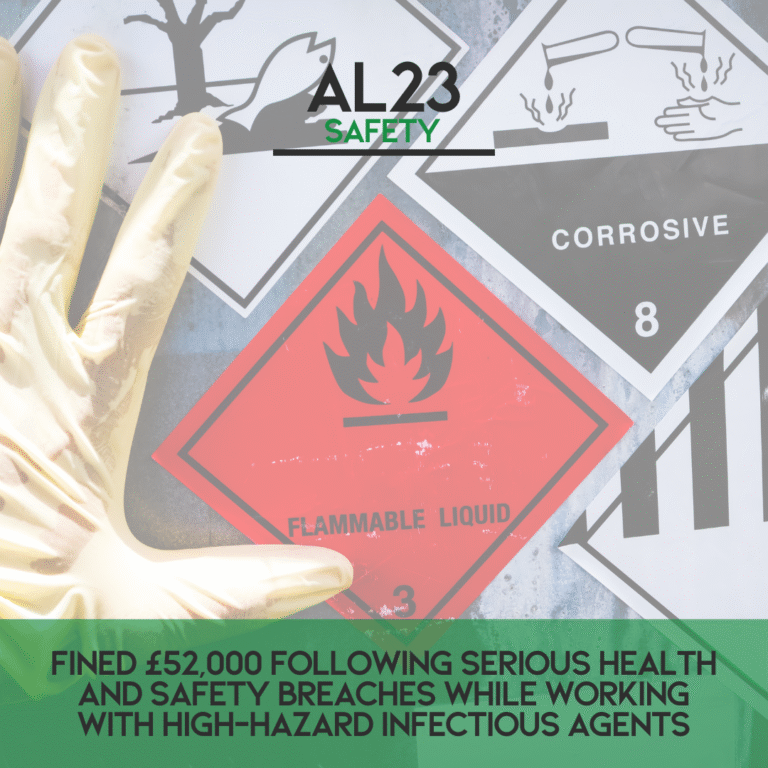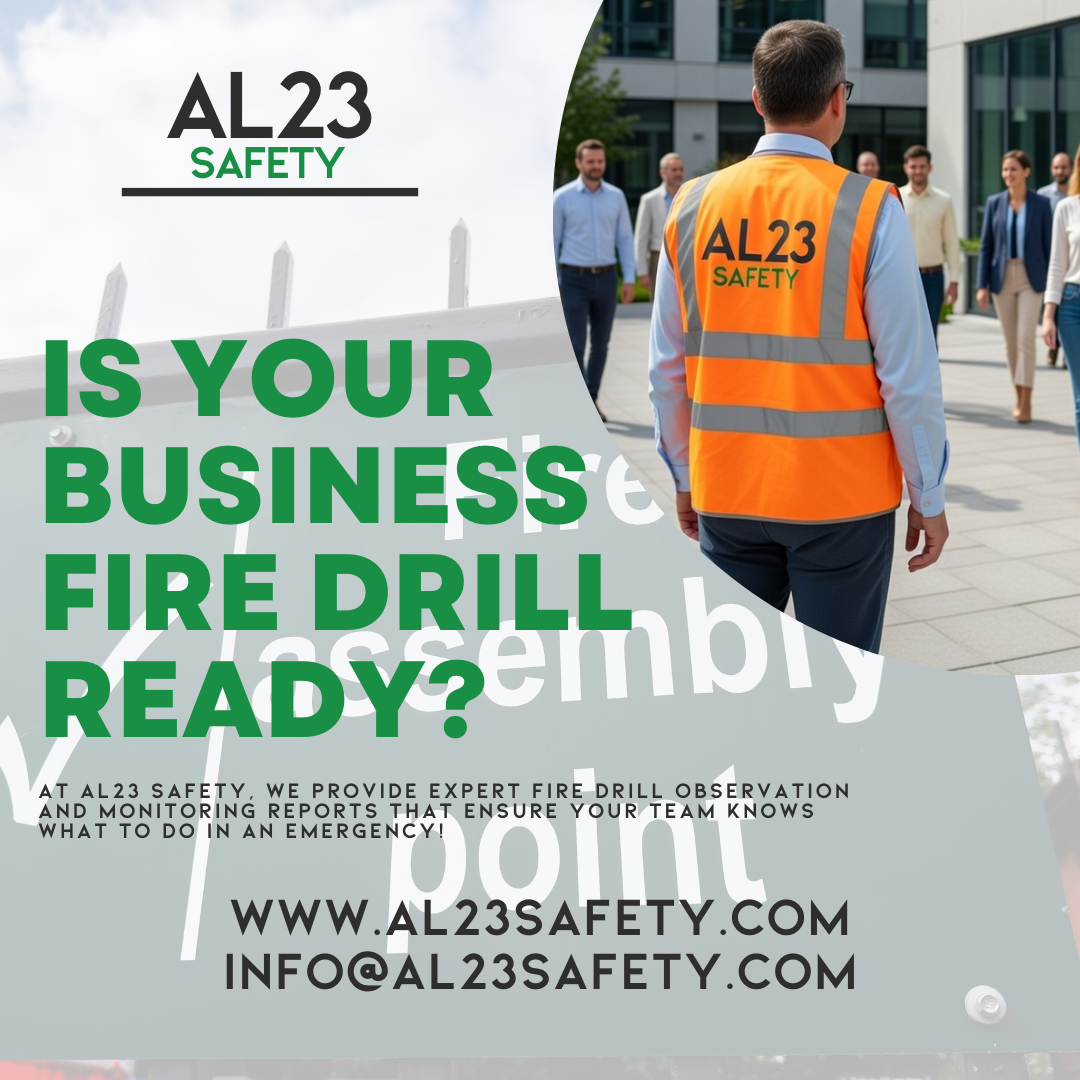Health and safety compliance is the cornerstone of protecting employees and the wider community in high-risk industries, yet the recent £52,000 fine imposed on Lab 21 Healthcare Ltd by the Health and Safety Executive (HSE) serves as a stark reminder of the consequences of falling short. This case, involving breaches related to handling Salmonella typhi, a highly infectious agent that causes typhoid fever, highlights critical failures in notification, equipment maintenance, and risk management. At AL23 Safety, we believe that understanding these lapses can empower businesses to strengthen their health and safety compliance frameworks. In this blog, we explore five urgent lessons drawn from the Lab 21 fines, offering practical strategies to achieve HSE regulatory compliance and foster a proactive safety culture.
The incident at Lab 21’s high-containment laboratory in Axminster, Devon, underscores how non-compliance with the Control of Substances Hazardous to Health (COSHH) Regulations 2002 can lead to severe penalties, reputational damage, and potential public health threats. Despite being aware of legal requirements, the company continued high-hazard operations for seven months without notifying the HSE, exposing workers and nearby businesses, like a gym and bakery on the same industrial estate, to risks from Salmonella typhi and toxic formaldehyde gas. Proceedings are ongoing against three directors under Section 37 of the Health and Safety at Work etc. Act 1974, further emphasising personal accountability. For organisations dealing with infectious agents, these events are a wake-up call to prioritise infectious agent safety and workplace safety regulations.
Lesson 1: Master Notification Protocols for HSE Regulatory Compliance
One of the most glaring breaches in the Lab 21 case was the failure to provide advanced notification to the HSE before commencing work with high-hazard pathogens like Salmonella typhi. Under COSHH Regulation 7(10) Schedule 3, employers must inform the HSE at least 30 days in advance for activities involving such agents, allowing for oversight and risk mitigation. This oversight not only delayed regulatory intervention but also amplified the potential for community spread of typhoid fever, a disease that claims thousands of lives annually worldwide.
To avoid similar pitfalls, businesses should integrate notification into their standard operating procedures. Conduct regular audits to ensure all high-risk activities are flagged early, and train staff on the legal obligations. At AL23 Safety, our consultants can review your processes to guarantee seamless HSE regulatory compliance, preventing fines that could reach tens of thousands of pounds.
Lesson 2: Prioritise Risk Assessment Compliance in High-Containment Environments
Effective risk assessment compliance is non-negotiable when handling infectious agents, yet Lab 21’s operations exposed vulnerabilities in this area. The HSE investigation revealed inadequate assessments for exposure to Salmonella typhi and formaldehyde, a carcinogen used for disinfection, which posed immediate dangers to employees and neighbouring premises. Proper assessments should identify hazards, evaluate exposure levels, and implement controls such as engineering safeguards, personal protective equipment (PPE), and emergency protocols.
Organisations can learn from this by adopting a systematic approach: perform site-specific risk evaluations quarterly, involve cross-functional teams, and document everything meticulously. Our team at AL23 Safety specialises in bespoke risk assessment compliance programmes, helping high-risk sectors like laboratories and pharmaceuticals align with HSE standards while minimising operational disruptions.
Lesson 3: Maintain Safety Equipment to Uphold Workplace Safety Regulations
The Lab 21 fines also spotlighted lapses in maintaining safety equipment, breaching COSHH Regulations 9(1) and 9(2). Faulty or uncalibrated containment systems and ventilation could have led to accidental releases, endangering lives. In environments dealing with biohazards, equipment like fume hoods, autoclaves, and PPE must be routinely inspected and serviced to prevent failures.
To embed this lesson, establish a maintenance schedule tied to usage logs and conduct mock drills to test equipment efficacy. Non-compliance here not only invites fines but erodes trust in your safety culture. AL23 Safety offers comprehensive audits and training to ensure your workplace safety regulations are not just met but exceeded, safeguarding your workforce effectively.
Lesson 4: Build a Safety-First Culture Beyond Mere Health and Safety Compliance
Health and safety compliance extends far beyond ticking boxes; the Lab 21 case illustrates how commercial pressures led to deliberate avoidance of scrutiny, resulting in prolonged risks. HSE Inspector Sarah Cuff noted that the breaches were “foreseeable and readily avoidable,” driven by profit motives over prudence. This highlights the need for leadership commitment, where safety is woven into company values through ongoing education and open reporting channels.
Foster this culture by appointing safety champions, integrating compliance metrics into performance reviews, and celebrating adherence milestones. For tailored support, AL23 Safety’s programmes include leadership workshops that transform compliance from a chore into a competitive advantage, reducing incident rates and boosting employee morale.
Lesson 5: Leverage Expert Partnerships for Proactive Infectious Agent Safety
Finally, the Lab 21 incident underscores the value of external expertise in navigating complex regulations. With proceedings against directors ongoing, it’s clear that internal knowledge gaps can cascade into corporate liability. Businesses often underestimate the intricacies of infectious agent safety, from COSHH adherence to integrating with broader frameworks like the Health and Safety at Work Act.
Partnering with specialists like AL23 Safety can bridge these gaps. We provide end-to-end services, including compliance gap analyses, custom training on handling hazardous substances, and implementation of safety management systems. Our approach has helped numerous UK firms avoid HSE penalties, ensuring robust infectious agent safety measures that protect both people and profits.
Moving Forward: Turning Lessons into Lasting Health and Safety Compliance
The Lab 21 fines are more than a cautionary tale, they’re a blueprint for enhancement. By embracing these five urgent lessons, organisations can fortify their health and safety compliance, mitigate risks from infectious agents, and demonstrate unwavering commitment to workplace safety regulations. The costs of inaction are steep: not only financial penalties like the £52,000 fine and £26,000 in court costs, but also the human toll of potential illnesses.
At AL23 Safety, we’re dedicated to guiding businesses towards excellence in HSE regulatory compliance. Whether through risk assessment compliance audits, infectious agent safety training, or full safety management overhauls, our solutions are designed for your unique challenges. Don’t wait for a fine to prompt action, contact us today to build a resilient, compliant future. Together, we can create workplaces where safety isn’t optional; it’s foundational.



